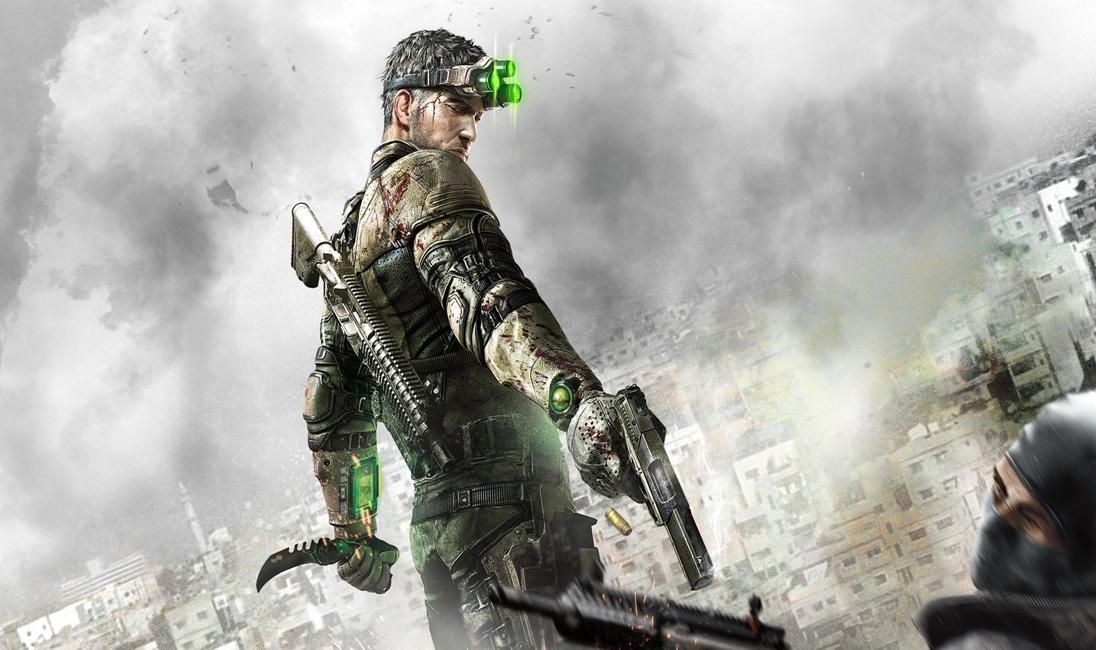Okay, let's talk Splinter Cell. I was genuinely excited, like many of you, when talk of a new game started bubbling up. Sam Fisher creeping through the shadows again? Sign me up! But then… well, then things got complicated.
The rumor mill started churning out a different story: Ubisoft had, supposedly, canned the new Splinter Cell project. Not shelved. Not delayed. Canceled. For what, you might ask? A live-service project. A live-service Splinter Cell. My heart sank faster than Sam Fisher avoiding a spotlight.
The Live-Service Shadow: A Splinter Cell Tragedy?
Now, I'm not inherently against live-service games. Some do it well. But Splinter Cell? That's a franchise built on stealth, tension, and meticulously planned solo operations. Turning it into a game constantly demanding your attention, filled with microtransactions, and dependent on a persistent online connection… it just feels wrong. Like putting pineapple on pizza. (Okay, maybe that's a bit extreme. I don't hate pineapple on pizza. But I don't actively seek it out, either.)
Think about it this way: Splinter Cell's core appeal is the feeling of being a lone wolf, a ghost in the machine. A live-service model almost inherently undermines that. It forces a social element, a grind, and a constant stream of content that dilutes the carefully crafted experience we've come to expect. It's like taking James Bond and making him work in a call center. Sure, he's still James Bond, but something's fundamentally… off.
But maybe, just maybe, I'm being too harsh. Let's explore this a little further.
Why a Live-Service Splinter Cell Could (Theoretically) Work
I know, I know. I just spent the last few paragraphs complaining. But hear me out. What if Ubisoft could find a way to blend the core Splinter Cell experience with the benefits of a live-service model? Imagine regularly updated gadgets, new mission parameters that change the way you approach levels, or even a co-op mode where you and a friend work together as a team of stealth operatives.
The key, and this is a big one, would be to avoid the pitfalls of many live-service games. No pay-to-win mechanics. No endless grind for cosmetic items. Just meaningful content that enhances the core gameplay experience. Maybe new challenging stealth missions set in different locations. Content that adds more complexity instead of forcing a player to grind for hours.
And actually, that's not quite right. A truly well-executed live-service model could even expand the Splinter Cell universe, diving deeper into the lore and introducing new characters. It could be a platform for telling stories that are too complex or nuanced for a traditional single-player game.
The Lingering Doubts (and Why I'm Still Worried)
Despite my theoretical optimism, I still have reservations. Ubisoft's track record with live-service games is… mixed, to put it kindly. And the temptation to chase trends and maximize profits can often lead to creative compromises that ultimately hurt the game. There is still a lot to be worried about.
The frustrating thing about this whole situation is the lack of clarity. Ubisoft hasn't officially confirmed or denied the cancellation rumors. We're left to speculate, to dissect leaks and insider reports, and to desperately cling to the hope that Sam Fisher will return in a form that honors the legacy of the franchise. Remember the awesome PS Merch Astro Bot figure, the game also needs some focus!
I keep coming back to this point because it's crucial: Splinter Cell is more than just a game. It's an experience. It's a feeling of empowerment, of control, of being the ultimate shadow warrior. And that's something that's easily lost in the pursuit of endless content and monetization.
But here's the thing: whether the rumors are true or not, the very fact that this conversation is happening highlights the deep passion that fans have for Splinter Cell. We care about this franchise. We want to see it thrive. And we're not afraid to voice our concerns when we feel like it's being led astray.
Maybe, just maybe, that passion will be enough to steer Ubisoft in the right direction. Only time will tell.
FAQ: Splinter Cell and the Future of Stealth
Is the new Splinter Cell game really canceled?
That's the million-dollar question, isn't it? As of right now, Ubisoft hasn't made an official announcement. All we have are rumors and reports from various sources. While these reports seem credible, it's important to remember that nothing is set in stone until Ubisoft confirms it themselves. So, for now, the fate of the new Splinter Cell game remains shrouded in mystery. We can only hope that Ubisoft will give the franchise the love and attention it deserves, even if it means exploring different avenues for its gameplay or monetization.
Why are people so upset about a potential live-service Splinter Cell?
A live-service model inherently changes the core structure of Splinter Cell gameplay. While Splinter Cell is built on solo gameplay, live-service model pushes players to engage in a persistent online connection. Many fans fear that a live-service approach would dilute the carefully crafted experience and emphasize monetization. It is a valid concern for those who are looking forward to seeing the main gameplay remain the same.
What are the potential benefits of a live-service Splinter Cell?
The theoretical benefits include regularly updated gadgets, new mission parameters, and even a co-op mode. A well-executed live-service model could expand the Splinter Cell universe and introduce new characters. Ubisoft could add new challenges set in various locations to keep player entertained. But, again, the risk of monetization is still the major concern.
Could Ubisoft change its mind and develop a traditional Splinter Cell game?
Absolutely! The gaming industry is constantly in flux. The commercial failures of live-service games like Suicide Squad: Kill the Justice League might convince Ubisoft to focus on the core gameplay, and thus creating the traditional game might be the better idea. They might take the risk or listen to the community and change their development strategy.





















